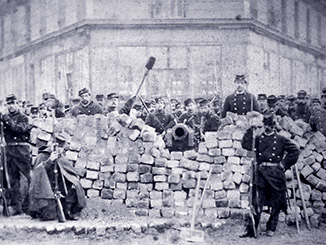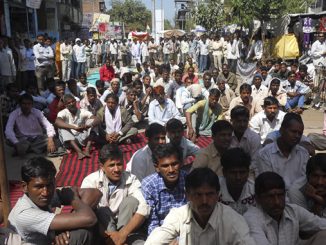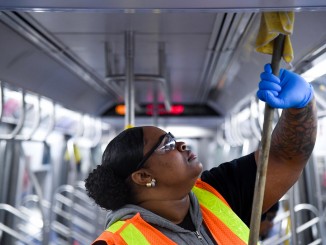
With one million demonstrators in the streets of Santiago last Friday, the Chilean mass mobilisation that started on October 18th is getting stronger. The announcement that the metro ticket price would increase provoked people’s anger. High school students were the first ones to react against this new blow on the standard of living of the poorest. They jumped over the metro turnstiles and stopped traffic. They were quickly followed by workers, retired and unemployed, forcing the authorities to close down the subway network. Against the anger, the government called on the army. A reminder of the Chilean dictatorship darkest hours, which sparked global outrage, and also encouraged the people to keep on fighting.
Inequalities and class contempt with no equal
The increase of the metro ticket by 30 pesos was the last drop. It would have squeezed the already tight budget of a majority of the three million metro users. Half of all workers earn less than €500 monthly, in a country where prices are close to those in Paris. On the other side, five families own 25% of the country’s wealth, illustrating the dramatic increase of inequalities in the last 30 years, with an outrageous accumulation of wealth by a few. The country is rich in raw materials and is the first exporter of agricultural products in the southern hemisphere, but a growing fraction of its people goes hungry.
A hated president, Sebastian Pinera is among the handful of billionaires who squeeze everything they can get out of the people. At the beginning of the movement, he showed his contempt for the demonstrators: “We are fighting an enemy […] who respects nothing nor anyone.” In a private message revealed by the media, his wife even compared the social mobilisation to an “alien invasion.” But in fact it is this crazy rich bourgeoisie that lives on another planet, light-years from working class preoccupations.
Chile’s bourgeoisie has intensified its war class against the people. It declared a state of emergency immediately on October 18th, and deployed its army in the capital, where soldiers have shot at demonstrators. The outcome, in terms of arrests, wounded, and dead – 20 so far – keeps getting worse.
Fear changes sides
The government’s brutality did not stop the mobilisation, quite the opposite. So the president had to change his attitude, seemingly becoming conciliatory and asking for “forgiveness.” On October 23rd, he announced a few small measures, cancelling the raise in metro ticket price, increasing the smallest pensions, and freezing electricity prices, among other things. Too little, too late. On October 24th and 25th, thousands of workers were on strike against the state of emergency, and the next day, demonstrators chanted “it’s not the 30 pesos, it’s the 30 years,” denouncing the 30 years of anti-worker policy that continued after the end of Pinochet’s military regime. The government reshuffle and the end of the emergency state announced during the weekend will not be enough to appease the anger.
Now is the time to organise and “kick the system out”
The Chilean revolt is not alone. After Sudan, Algeria, Hong Kong and Ecuador, protests are rising in Lebanon and Iraq, where hundreds of thousands of oppressed people, fed up with unemployment and miserly wages, dare brave repressive measures.
For this new wave of anger to lead to real change, the whole system has to go. Organising will be necessary for the people, first to requisition supermarket food. Only a worker’s organisation can challenge the power of the dominant and always more rapacious and violent class. To take away its leadership on society and give it back to those who work is the only way everyone will be able to live, not just survive.




